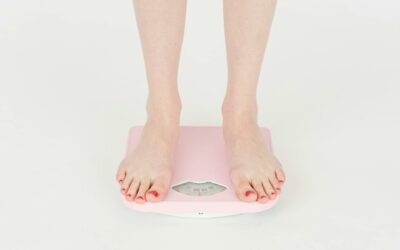The human body changes dramatically with age. While we don’t have control over the passing years, we can control important factors that keep us healthy and remain diligent about our body’s needs as we age. Heather Huntsman, Ph.D., CSCS, is back again with a run-down whether or not our protein needs change as we get older.
In a previous article (Can I build Muscle While I Sleep?), you remember we discussed that in order to build muscle properly, two things are important: 1). You need to load your muscle in such a way that drives adaptation (i.e. lifting to failure), and 2) You need to fuel properly. The fuel most important for building and maintaining muscle and is amino acids which comes from the protein you consume.
Like any tissue in the body, muscle is in a constant state of turnover. At any given time, muscle is breaking down and building in response to various signals. These signals can be exercise, injury, or the foods we consume, among others. If you want to build muscle, building signals must be greater than breakdown signals, and signals must be equal for maintenance.1
Unfortunately, the harsh reality is that as we age, the strength of these various signals decreases. We have less testosterone (true for both men and women), less growth hormone, we move less, and we often eat less. When combined, these changes can result in as much as 30-50% loss of muscle after the 4th decade of life.2 That amount of muscle loss can not only impact function and independence, but it can also have devastating effects on overall health.
So, what can you do? Is there any way to stop muscle loss? The good news is: you can. While hormonal that occur with age are sometimes inevitable, two areas where you can have a huge impact are how much you move, and what you consume. Keep moving, keep going to the gym, and keep challenging yourself. I start there because as a certified strength and conditioning coach I know that this is the harder of the two points of intervention. It 100% pays off though, and it’s good to be reminded that we’re never too old to build muscle.1
The second area, and the less focused on, is to make sure you get enough protein. For young adults the recommended daily amount of protein is 0.8g/kg/body weight/day which translates to about 20-30g per meal for most individuals. This amount has been shown to maximize the signal for muscle building for most individuals. But like I stated before, these signals decrease in strength as we get older, and to achieve this same muscle building signal, older adults must consume 1.0-1.5g/kg/body weight/day, or 35-40g per meal.3,4
Fortunately, there are ways to slow and even reverse the effects of age on muscle loss.1 You just need to stay informed, stay motivated, and continue to be mindful of what you eat. I’ll also take this moment to remind you that like all the macronutrients (i.e. carbs, protein, and fat), not all protein is created equal. The type and quality of the protein you eat is also an important component of the signal you send your muscle1,5, but that is a topic for another article.
References:
- Soultoukis GA, Partridge L. (2016) Dietary Protein, Metabolism, and Aging. The Annual Review of Biochemistry 85: 5-34.
- Denison HJ, Cooper C, Sayer AA, et al. (2015) Prevention and optimal management of sarcopenia: a review of combined exercise and nutrition interventions to improve muscle outcomes in older people. Clinical Interventions in Aging 10: 859-869.
- Baum JI, Kim IY, Wolfe RR. (2016) Protein Consumption and the Elderly: What is the Optimal Level of Intake? nutrients 8(359):1-9.
- Devries MC, Phillips SM. (2015) Supplemental Protein in Support of Muscle Mass and Health: Advantage Whey. Journal of Food Science 80(1): A8-15.
- Hruby A, Jacques PF. (2019) Dietary Protein and Changes in Biomarkers of Inflammation and Oxidative Stress in the Framingham Heart Offspring Cohort. Current Developments in Nutrition 3(5): e1-9.



